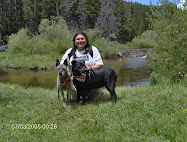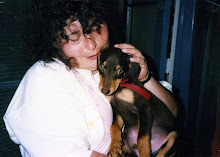skip to main |
skip to sidebar
All water has a perfect memory
and is forever trying to get to where it was.
- Toni Morrison
Dedication to our co-author, colleague and friend ...
by Francisco Rios, Caskey Russell and Jacquelyn Bridgeman in Critical Race Theory Matters: Education and Ideology, Routledge, 2010
This book is dedicated to the memory of our colleague and friend, Dr. Margie Zamudio. Dr. Margie Zamudio was the driving force behind this book: she first proposed it to the publisher and then she proposed it to us. She organized the meetings where we discussed the focus and organization of the book, she was the person who collected the parts we wrote, she provided commentary and recommendations for improvement. She had final editing approval for the contents of the book and was the person who worked most closely with the publisher.
We were working on the final revisions for this manuscript when, on Christmas day, 2009, Margie Zamudio died in a freak accident outside of her home. With her sister Josefina at our side, we spread the ashes of her two dogs—Chewee and Fidel— along with her own in the mountains outside of Laramie, the place she loved to walk, to bike, and to cross-country ski. She leaves behind her dog Harley and many, many people who call her friend, softball player, scholar, teacher, activist, collaborator, and writer.
***
Margie Zamudio was born in Los Angeles, California where she grew up. After a troubled childhood, she found her way to UCLA as a recipient of a college preparation program. She not only completed her Bachelor’s degree, but she also completed her Master’s and Doctoral Degree in sociology, the latter in 1996.
She held a position in sociology at the University of Colorado – Boulder from 1996-2002. In 2002 she accepted a position in Chicano Studies and Sociology at the University of Wyoming. In 2009, she received tenure and promotion to Associate professor. She taught courses for Women’s Studies, Chicano Studies, and Sociology.
Her academic interests focused on labor relations (particularly for black and Latino laborers), immigration issues, racism and racialization, and women of color in the US. She had an emerging interest in the sociology of education. In the last few years, she took an active interest in Critical Race Theory, and had attended the LatCrit conference for the last several years.
***
Margie was an incredible critical friend. Given her ethic of critical thinking, she pushed, cajoled, critiqued, challenged, and at the same time affirmed her students, colleagues, and friends. She was the kind of person you definitely wanted on your side in a fight and she was as loyal a friend as any could find. She was a great colleague to collaborate with because you knew that she would offer suggestions and critique that would make the work stronger. She also was a very a good writer in her own right. And, as an organic intellectual, she sought to bring her activism and her academics together in ways that few are able to do and succeed.
In her office at home Margie kept a pair of boxing gloves signed by Muhammad Ali. Like Ali, Margie was a fearless, often vocal, fighter for issues of social justice and civil rights. And, like Ali, Margie had a wonderful capacity for humor and compassion. Margie’s fighting spirit came from her immense feeling of humanity and her indignation against injustice—especially injustice done to marginalized people.
Margie the scholar, the intellectual, the activist, the mentor, the caring, compassionate and supportive friend never forgot where she came from. She never quit fighting for social justice. She never quit pushing herself and others to remain critical and to continue to work to dismantle the systems of privilege and hierarchy that continue to marginalize, subordinate, and oppress so many. It is our hope that in finishing this book, which was so important to her, that we will help others acquire the tools necessary to pursue social justice and equality, particularly within the field of education.
We hope that this book provides you, dear readers, with a small insight into the kind of person—friend, colleague, and scholar—that Margie was. While she had several book ideas, this is her first book. We lament that it is also her last. We offer this book as a testament to her legacy, the person she was and the kind of work that she accomplished. We will miss her.















No comments:
Post a Comment